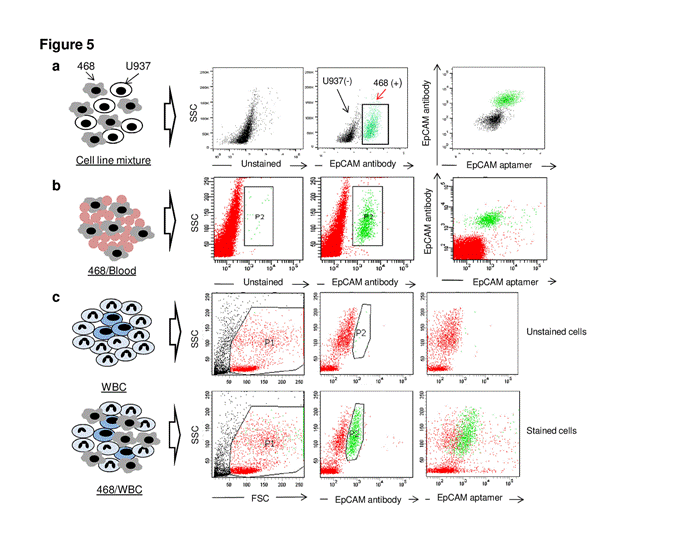Epithelial cellular adhesion molecule (EpCAM) is a biomarker highly expressed on the surface of epithelial carcinoma cells. Consequently, it has been widely used for detection of carcinoma tumors and isolation of individual circulating cancer cells and EpCAM-targeting therapeutics are undergoing pre-clinical and clinical testing against several types of carcinomas. Aptamers are a new class of small oligonucleotide ligands that bind to their targets with high affinity and specificity, and are thus termed “chemical antibodies.” In comparison to protein antibodies, aptamers are smaller in size, which improves their tissue penetration potential, and elicit few to no immunogenic responses. Previous studies by researchers from Houston Methodist Research Institute and The University of Texas MD Anderson Cancer Center have revealed that ssDNA, compared to RNA aptamers are significantly more stable in human serum and thus, are suitable for in vivo use. In their recent study, by using a hybrid cell-biomarker selection approach, they developed ssDNA-based aptamers specific for EpCAM. Through RNA sequencing services performed by LC Sciences, they identified a dominant aptamer sequence (58.7% of >0.5 million sequence reads) that contained both loop and stem structures, and specifically targeted EpCAM-expressing carcinoma cells with high binding affinity (Kd=12 nM). Validation studies indicated that the newly synthesized aptamer targeted a variety of cultured carcinoma cells, including pancreatic, breast, ovarian, prostate, and colon cancer cells, but did not react with cultured EpCAM-negative leukemia and lymphoma cells. In addition, the aptamer recognized EpCAM-expressing, patient-derived primary normal and carcinoma cells. Finally, the aptamer selectively targeted carcinoma cells in complex cell mixtures, and showed no reactivity to mononucleated or red blood cells, demonstrating its suitability for therapeutic in vivo use.
The EpCAM-specific #1-F aptamer preferentially distinguishes epithelial cancer cells in cell mixtures

Related Service
miRNA/Small RNA Sequencing Service – miRNA sequencing is a new method and powerful tool to identify and quantitatively decode the entire population of microRNAs in your sample. LC Sciences now provides a comprehensive microRNA sequencing service[Learn more…]
Reference
Nianxi Z, Yimin G, Paul J. C, Youli Z (2014) Development and Characterization of a ssDNA-based Aptamer that Selectively Targets Epithelial Carcinoma Cells J of Mol Biomark and Diagn 5:204 doi: 10.4172/2155-9929.1000204 [article]
